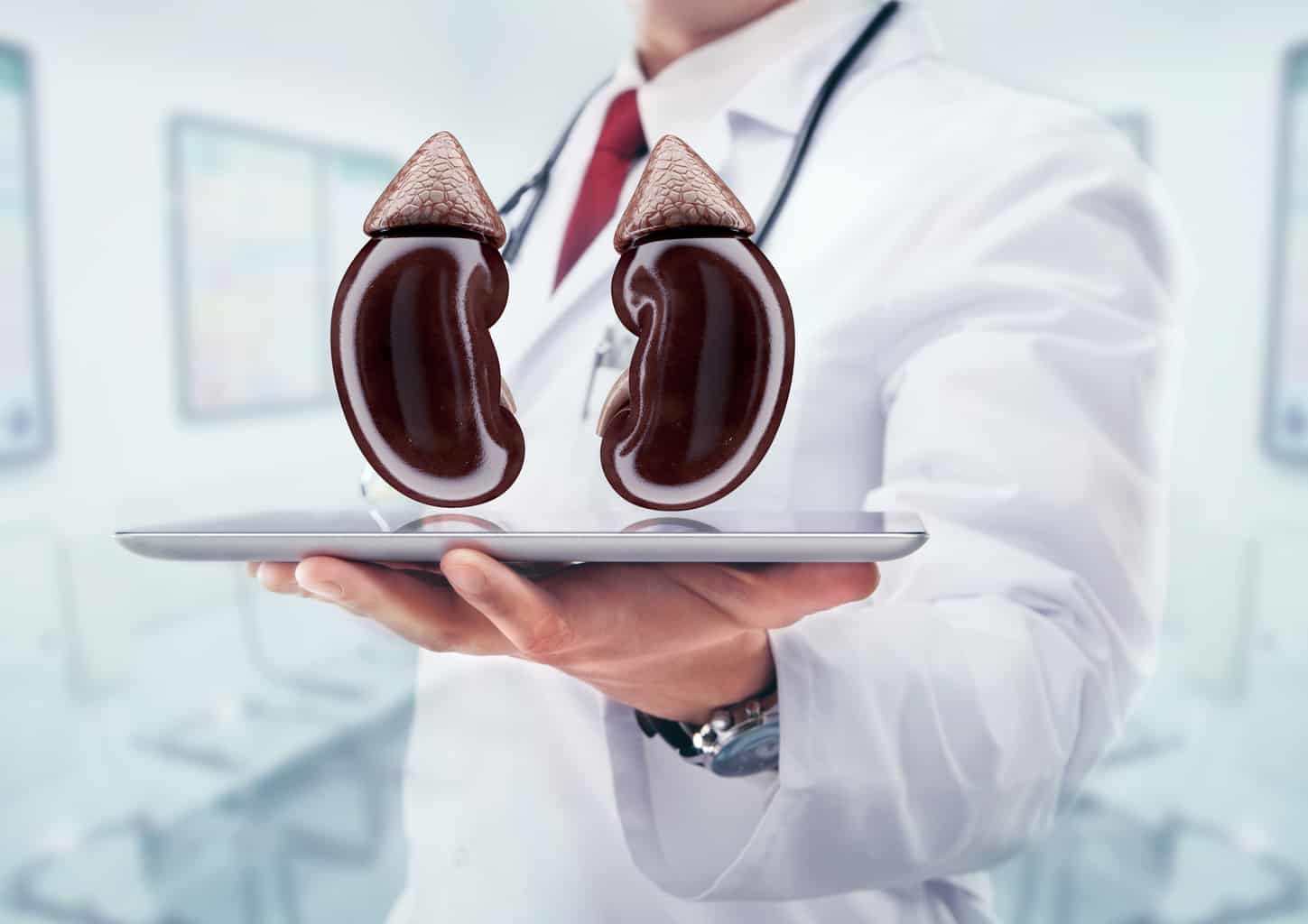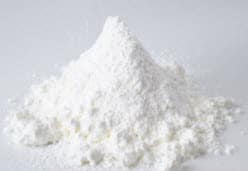
[cmamad id=”14131″ align=”center” tabid=”display-desktop” mobid=”display-desktop” stg=””]
Doctors just recently began to offer this vitamin to diabetic patients.
——Important Message——
Can this powder, that you can find right now in your home, triple testosterone and boost sexual performance?

This powder is said to lengthen lifespan by as much as 40%, restore teenage metabolism, and improve sexual performance.
Because when your metabolism is raised, your body begins making the youth and energy hormones in large quantities.
More T, more DHT, more dopamine. These mean MUCH BETTER performance…
Low metabolism can be the cause of low performance…and your body is WAITING for you to increase metabolism.
———-
The “kidneys of steel” vitamin
According to the CDC, 22 million people in the US have diabetes.
And by 2050, one in three American adults will be diabetic.
As a diabetic, one of the things you really need to pay attention to is kidney disease.
Diabetics are prone to kidney disease.
Depending on how it’s defined, 10-40% of diabetics end up with chronic kidney disease.
This is a major cause of kidney failure. (Think dialysis, transplants.)
What can be done to prevent diabetic kidney damage?
I get asked this a lot by men who have just been told they have diabetes.
Feeling helpless is not good for your health. But a diagnosis of diabetes can make you feel helpless.
Especially if you’ve been trying to shed weight, and have found it difficult.
Or if you’ve been struggling to lower your blood sugar. Or your blood pressure.
[cmamad id=”14132″ align=”center” tabid=”display-desktop” mobid=”display-desktop” stg=””]
But this study really gives new hope:
A common vitamin that runs low in diabetics, gives us a clue…

“Increased renal clearance of thiamine (vitamin B1) occurs in experimental and clinical diabetes, producing thiamine insufficiency…linked to the development of diabetic nephropathy.”
In other words, diabetics lose more thiamine (vitamin B1) from their kidneys than healthy people. And this is linked to kidney damage.
If you could do something to boost vitamin B1, you could help protect your kidneys.
So, I wonder, could it be as simple as just taking a supplement?
In this case, yes!
“Oral thiamine supplements prevented the development of incipient nephropathy in streptozotocin (STZ)-induced diabetic rats.”
“Two clinical studies evaluating the use of thiamine supplements in Type 2 diabetic patients with microalbuminuria to counter the washout of the vitamin found that urinary albumin excretion was decreased, and in some cases reverted to normoalbuminuria by thiamine supplementation.”
So it looks like you can indeed improve the situation by supplementing your vitamin B1…
“It seems likely that the benefits of thiamine supplementation are achieved by countering diabetes-induced renal washout of thiamine.”
And this might lessen damage and possibly even reverse it…
If it’s caught in the early stages.
So keep an eye on your kidney function tests and get them done regularly.
I’m sure you’re doing that anyway under the care of your doctor.
If there are signs of deterioration in the albumin and filtration tests, that could be a warning sign.
Of course, you’ll also be aiming to combat high blood sugar as well…
High blood sugar seems to be the cause of low B1 in the first place!
“Hyperglycemia-induced thiamine transporter dysregulation likely explains the increased renal washout of thiamine in clinical diabetes…”
Lowering blood sugar is not always easy, though.
As you may already have discovered.
For example, one of the major chemicals used for lowering blood sugar is Metformin.
BUT Metformin is contraindicated if you have kidney function problems!
So it’s great to be able to approach this problem from another angle.
And there are other good reasons to get your B1 levels in shape anyway.
B1 – beyond the kidneys?
When I read in this study that Vitamin B1 is essential for energy production, I wondered:
Just in the kidneys? Or everywhere?
Does low B1 play a role in diabetic problems elsewhere in the body?
Can more B1 can protect other parts of the body too?
Let’s look at another problem associated with diabetes: eye problems.
Eyes, like kidneys, are valuable, delicate organs that we really need.
The study below looked at B1 in relation to the retina of the eye:

“In retinas of diabetic animals, benfotiamine treatment inhibited these three pathways and NF-kappaB activation by activating transketolase, and also prevented experimental diabetic retinopathy.”
(NF-kappaB is a protein complex is involved in a bunch of cell functions including inflammation.)
They found that benfotiamine (which is a fat-soluble version of B1) prevented diabetic retina damage.
It does this by protecting the cells that tend to die off when you have high blood sugar.
“The ability of benfotiamine to inhibit three major pathways simultaneously might be clinically useful in preventing the development and progression of diabetic complications.”
So B1 might be a diabetic’s best friend…
And this all seems to come down to how it helps your body use glucose at a basic level.
A review on B1 for diabetes talks about a profound effect from B1 at a metabolic level.
Energy production takes place in the mitochondria of the cells. All the cells.
In your whole body, in other words.
“Since glucose metabolism depends on thiamine as an enzyme cofactor, it is biologically feasible to suppose that adequate thiamine supplementation in diabetics might have a profound effect on metabolic compensation…”
B1 has a lot to offer diabetics. Not least of which is hope.
——Important Message——
Let’s look at another problem associated with diabetes: Is a fatty liver the root of diabetes?
Remember, fatty liver disease has hit at LEAST 40% of men… and a lot of those men are diabetic men.
Professor Smith from Brown University School of Medicine says: “Fatty liver disease is highly prevalent in type 2 diabetes.”

Because when your liver is fatty, it can’t store enough sugar…and diabetes is often the result.
Here is my 2-week liver pr2-week that results in a clean liver, longer periods you can go between meals, a higher metabolism, and no more diabetes.
———————-

https://www.ncbi.nlm.nih.gov/pmc/articles/PMC4160578/
Diabetes Information: Sutter Health Palo Alto Medical Foundation
http://www.pamf.org/diabetes/whatis/
Glucose-Induced Down Regulation of Thiamine Transporters in the Kidney Proximal Tubular Epithelium Produces Thiamine Insufficiency in Diabetes
https://www.ncbi.nlm.nih.gov/pmc/articles/PMC3532206/
Medical Management of Hyperglycemia in Type 2 Diabetes: A Consensus Algorithm for the Initiation and Adjustment of Therapy
http://care.org/content/32/1/193.full?linkType=FULLjournalCode=diacareresid=32/1/193
Benfotiamine blocks three major pathways of hyperglycemic damage and prevents experimental diabetic retinopathy.
https://www.ncbi.nlm.nih.gov/pubmed/12592403
Evidence for altered thiamine metabolism in diabetes: Is there a potential to oppose gluco- and lipotoxicity by rational supplementation?
https://www.ncbi.nlm.nih.gov/pmc/articles/PMC4058733/
https://www.healthline.com/health/recognizing-diabetes-symptoms-men
https://www.webmd.com/men/guide/diabetes-men#1
https://www.mensjournal.com/health-fitness/the-benefits-of-multivitamins-20121203/
http://www.acaloriecounter.com/diet/multivitamins/
https://www.health.harvard.edu/mens-health/do-multivitamins-make-you-healthier
High blood sugar or Diabetes is considered an epidemic, given the ratios at which people at large seem to be afflicted by it. It is a kind of disease where the body cannot produce or use enough of insulin, thus leading to the inability to break down sugar thus leading to many health conditions which can include problems with the nervous systems, kidneys and even erectile dysfunction problems in men.Diabetes among men may include different symptoms that may need attention. Frequent urination is a early symptom of high blood sugar in men. Especially in the nights, one can have frequent urination which can be stressful. Unusual fatigue and Blurred vision are two other symptoms among men who suffer from high blood sugar levels. Regardless of one’s daily physical regimen, there may be existence of high fatigue which calls for swift medical attention. Sudden weight loss is also a symptom of high blood sugar in men. One could also experience numbness or a certain kind of tingling feeling in the hands and feet which is a sign that the individual may be suffering from high blood sugar. If there are bacterial infections in the eyelids or hair follicles, one should go for medical diagnosis to check blood sugar levels. There might be bacterial infections of the fingernails or the toenails which could also be a sign of high blood sugar levels. When men have high blood sugar, the diabetic nerve damage can cause other urological symptoms like urinary tract infections. High blood sugar is usually at risk for people who are overweight, have minimum physical activity, smoke and drink a lot and are above the ages of 40. High cholesterol and high blood pressure can also put an individual at the risk of developing diabetes. Some steps to control the high blood sugar level include lifestyle changes that are conductive to long term health. This includes adding a daily exercise regimen, a balanced intake of fruits & vegetables, fats and proteins to improve body health and keeping up the balance of the body’s metabolic processes. Limiting and controlling the intake of too much sugar into the body is an important step in handling blood sugar levels.
2. What are the benefits of multivitamins for men?
Multivitamins are essential for men, since they help to provide the essential vitamins that may not be available through average diets. It can not only boost overall wellness but can also fulfill any nutritional needs of their body that is lacking. Though there is an increase in the trend of vitamin supplementation, people abuse the use of multivitamins. So it is prudent to only go for multivitamins with medical diagnosis. Your doctor can analyze the need for specific multivitamins in the body which can be more beneficial for health than self medication.Every individual’s body is different and dependant on their gender, age, diet and lifestyle their multivitamin needs may also differ. The use of multivitamin among men may not have any long term side effects but helps to stop the onset of certain physical conditions that are harmful for the body. The intake of multivitamins has been found to improve the body’s defence against Cancer. Those who take multivitamins are at a low risk of developing cataracts or any issues with the eyes. But at the same time there may not be any direct beneficial effect or protection against cardiovascular diseases like heart attacks and strokes. Multivitamins like Vitamin A is good for a healthy skin and vision and can help aid in the proper growth and development of the body. Vitamin C is often called a great antioxidant and plays a important role in the strengthening of the blood vessel cells and guards against the onslaught of the free radicals. Vitamin D in multivitamins plays a critical role in maintaining bone health and has been known to strengthen the immune system. It regulates the amount of calcium and phosphorous in the body and thus regulates bone density. Iron as a multivitamin plays a important role in the maintenance of healthy red blood cells and the production of haemoglobin and helps in delivering oxygen and other nutrients to all the parts of the body. Zinc among multivitamins is beneficial for immunity and fertility. Zinc is considered an important building block for proteins and enzymes for the body and helps in the maintenance of a strong immune system. It also plays a beneficial role in the healing of wounds and supports skin health.Athletes who are involved in more physical activity than the others ,need Multivitamins for their body needs .Strenuous exercise may often cause oxidative stress and damage to the tissues, so the need for the intake of antioxidants like vitamin C and E through multivitamins plays a very important role.

Leave a Reply